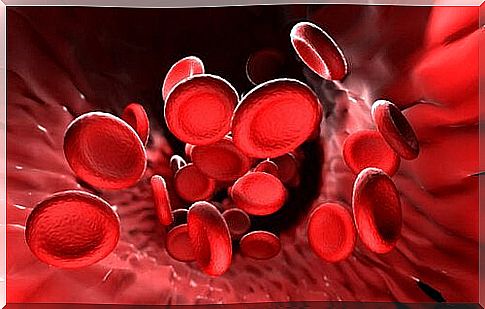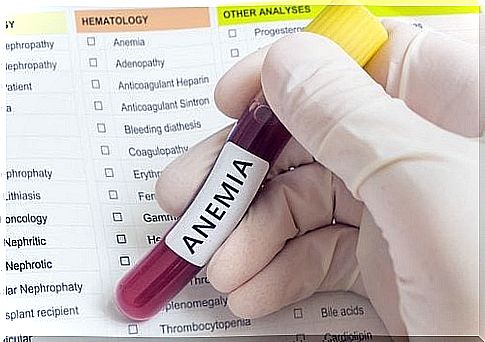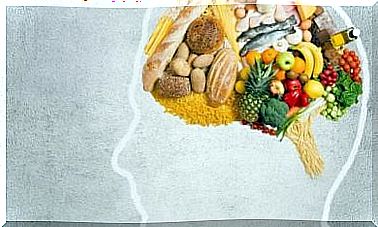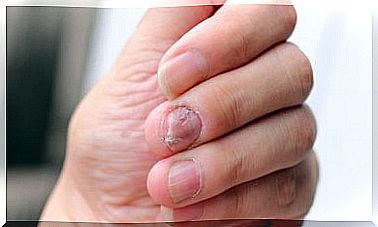The Consequences Of Iron Deficiency
Iron deficiency has many consequences that we sometimes do not relate to this lack, such as bad mood or extreme fatigue.

Iron deficiency has many consequences that we sometimes do not relate to, such as bad mood or extreme fatigue.
Although the most important hallmark of iron deficiency is anemia, iron deficiency creates more problems that are worth knowing.
We recommend that you pay attention to the following symptoms if you think you are not getting enough of this nutrient.
Iron deficiency is a global problem
Millions of people suffer from iron deficiency. Especially in developing countries and in Western Europe because of inefficient food.
We should not underestimate iron deficiency as it has negative consequences on our health.
Among its many functions, this element allows hemoglobin to function properly and provide oxygen to all cells.
Iron is essential for health but is present in small quantities in our body. It is therefore necessary to obtain it through food and especially a balanced and varied diet.
There are two types of iron:
- The first is the hemo , which is of animal origin and is easily absorbed.
- The second is the non-hemo , vegetable, whose absorption is reduced. This is the reason why many vegetarians and vegans suffer from anemia.
Other functions of iron are:
- Participate in the production of blood substances
- Intervene in DNA synthesis
- Be part of the cellular respiration process
- Help maintain the immune system
As if all this were not enough, this component takes part in many chemical reactions. It is also vital in the production and release of energy.
To find out if we are low on iron, we can do a blood test:
- Normal values in adult men are between 80 and 180 ug / dl
- In adult women between 60 and 160 ug / dl
- In children between 50 and 120 ug / dl
- They are found in babies under one year between 100 and 250 ug / dl
If, on the contrary, the levels are above average it may be due to diseases such as:
- Hemochromatosis
- Hepatitis
- Hemolytic anemia
- Iron poisoning
In the same way, in certain specific circumstances the values can go down:
- Pregnancy
- Undernutrition
- Cancer
- Chronic blood loss
- Chronic hypermenorrhea
Consequences of lack of iron
We can pay attention to certain signals the body sends us to alert us to iron deficiency.
If you are suffering from more than one of these symptoms, it might be a good idea to see a doctor and get a blood test:
-
Weakness and fatigue
No matter how many hours you sleep or how many naps you take, you are always without strength or enthusiasm. It is also very difficult for you to get up in the morning. You also want to sleep anytime.
Not to mention your demands, this weakness or fatigue may be due to iron deficiency.
This element indeed allows the transport of oxygen to the cells. The tissues do not receive enough “fuel” when it is lacking. Operation is therefore faulty.
Lower vitality and extreme fatigue due to low impact activities can therefore be linked to iron deficiency.
2. Low yield and bad mood
A lack of iron directly affects our emotional states. This is why it is normal to be too irritable, depressed or in a bad mood.
In addition, if we add fatigue to that, the consequence is understandable: problems with performance at work, in studies or with usual tasks.
Pay attention to your moods and your level of concentration in your activities.
Iron deficiency negatively affects memory and attention. Anything you try to do will cost you double the effort. You will quickly lose motivation, even for things that appeal to you.
3. Paleness
When you have anemia, your skin is likely to be paler or white than usual.
This is due to the fact that the dermis or the mucous membranes have tissues that no longer receive enough oxygen.
Some people may also have a whitish color under the eyes (at the beginning of the eyelashes).
4. Heartache and nausea
One of the consequences of a lack of iron is the lack of oxygen received by the cells. This then causes continual nausea.
In addition, one may experience a feeling of lack of air when trying to breathe, with faster and more frequent inhalations (polypnea).
In more severe cases, people who do not get enough of this nutrient may pass out or pass out at any time of the day. They may also experience ringing in the ears or suffer from faintness.
5. Palpitations
The rapid heartbeat that occurs when we are not doing any exertion or exercise can be linked to iron deficiency.
- When the blood is not circulating in the right conditions, the heart system has to work harder to push it back to each organ.
- In addition, we can present tachycardia, arrhythmia or even an acute myocardial infarction.
6. Nail brittleness and hair loss
Iron deficiency can cause nails to break easily, are thin, and have white markings near the cuticles.
In the case of hair loss, this is due to the blood reaching the head with little oxygenation and not nourishing the hair follicles.









